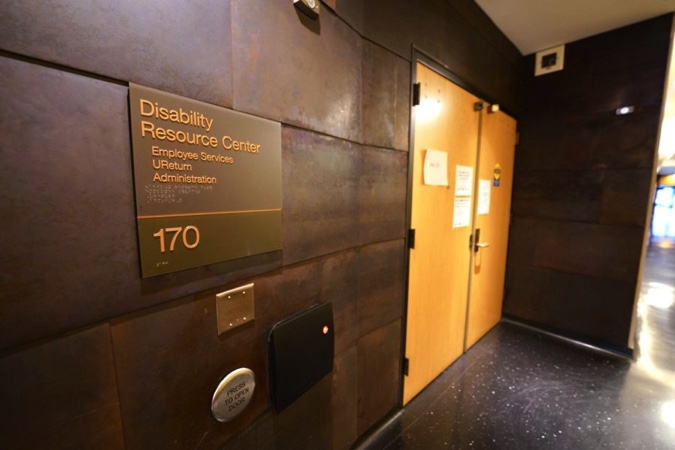As undergraduate student body president at the University of Minnesota, Simran Mishra’s days never look the same.
On the first day of spring semester, Mishra woke up around 6 a.m. to get ready for a yoga class at 6:45 a.m. Then she went to three classes, checked in with her colleagues and called University administrators. At the end of the day, she fit in dinner with her friends before working on homework and getting to sleep around midnight. She did all this while getting paid what equates to just over $3 per hour for a 40-hour work week.
Despite what many student presidents describe as a demanding workload, compensation for presidents varies from school to school. Pay for student presidents around the country falls anywhere between getting their full tuition waived during their presidential term to receiving no benefits or compensation for their position.
Many student presidents need to pay for tuition, housing and cost of living without working other jobs during their presidential term. These steep requirements may preclude some from running for president.
“There isn’t a day that goes by that I don’t think about the privilege I have. The privilege I have and that one needs to have in order to serve in this role,” Mishra said.

Student presidency at the University of Minnesota
As student body president at the University, Mishra receives a $6,000 stipend for her year-long term.
Student presidents like Mishra have responsibilities including meeting with University administration and engaging with the student body.
For Mishra, that means she is regularly “on-call” in case the University needs her input, meets for hours with MSA members and University administrators and attends at least 16 credit hours worth of classes each week.
Last year, outgoing student body president Trish Palermo advocated for a raise to the president’s yearly stipend of $5,000, saying the position warranted more pay.
“The reality is, the majority of students have to work while they are a full-time student in order to make ends meet,” Palermo said. “When these positions aren’t paid or are paid very low, they become inaccessible to a large portion of the student body.”
Palermo said she thinks the University should waive tuition for the student body president because the University recognizes the Minnesota Student Association as a University governance entity.
“I think these roles should be officially recognized by the University, and that we should be compensated by the University,” Palermo said. “The way that that should work is having tuition waived,” she said, adding it would allow the president to fully focus on their role and academics.
More than 26 percent of students took a job for the first time while in college and more than 42 percent of students said they increased their hours at work to pay for college expenses, according to the University’s 2017 Student Experience in the Research University survey.
The University’s Office for Student Affairs’ Student Services Fees provide the funds, and MSA members decide where to allocate their budget, a process that varies depending on what entity funds their budget.
Maggie Towle, the University’s interim vice provost for student affairs and dean of students, said in an emailed statement that OSA values the voice of student government. She added that the student governments are financially and legally independent of the University.
“A tuition waiver may raise several issues that affect that autonomy. … Based on feedback from students in those organizations about the importance of remaining independent of the University, a tuition waiver has not been offered,” Towle said in the statement.
Palermo said it’s important that any student who wants the position is able to run for it.
“People need to step back and realize what it means when we make these great opportunities unpaid,” Palermo said. “I don’t want to cut out low-income students from these great opportunities.”
Same position, different pay: salary inconsistencies create difficult dilemmas

Debate about student body president compensation is not a new issue. Pay for those positions varies based on the student government.
Daniel Greene, student body president at the University of Michigan, receives no benefits or pay for his position. He quit two work-study jobs to handle the demands of his position.
In comparison, Jonathan Allen at the University of Maryland said he receives a $10,595 stipend for his position as student body president, which equates to the cost of in-state tuition and fees.
“It would be impossible to do the job of student body president to my best ability [without the University funds],” Allen said. “I think those that are looking to get involved in student governments … should be willing to commit their full attention and time to the role, otherwise it only hurts the student body.”
More than 65 percent of 203 student body presidents surveyed in 2018 relied on some sort of financial aid to pay for college, according to a report by the National Campus Leadership Council, which provides resources for student leaders across the country.
“If [student body presidents] are not able to put in the time, then it is to the detriment of the student body … and the ways that student perspectives and stories are making it to the decision-makers at the institution,” said Andy MacCracken, NCLC’s executive director.
Mishra said because her position at UMN is not well-paid, the undergraduate student government sometimes lacks the voices of those who are of lower socioeconomic status. However, she said MSA actively reaches out to those students.
According to the University’s 2017 SERU survey, more than 40 percent of students said that they were concerned or very concerned about paying for their education.
“If you’re saying that a student leader is going to have to go unpaid or have to defer to a paid job on campus … then you’re really going to force someone to make some tough personal financial decisions, or you’re going to entirely limit who is able to access those leadership roles in the first place,” MacCracken said.
Although some believe student body presidents should have their tuition waived or receive an increase in pay, many think that offering tuition for the role will only attract applicants who want the money.
“People should do it because they care,” said University of Nebraska-Lincoln Student Body President Hunter Traynor. “When you add all these crazy benefits to [the position], it calls [motive] into question.”
MacCracken said he can understand why some people would think students would run for election because of the position’s benefits. But, he said he thinks those people wouldn’t get elected.
“We just want to make sure that any student that wants that opportunity is able to run with their ideas,” Palermo said. “That they’re able to apply for the positions that they’re interested in and that their financial backgrounds won’t be a barrier to these advocacy opportunities.”














